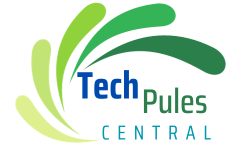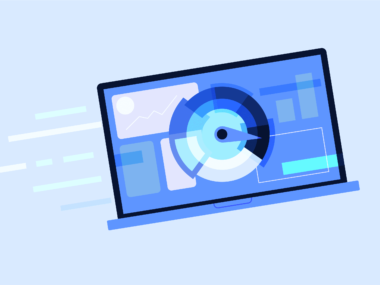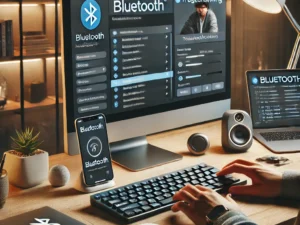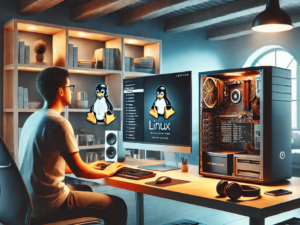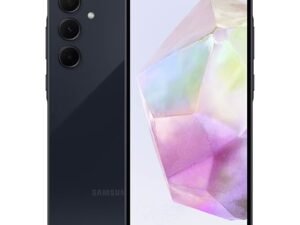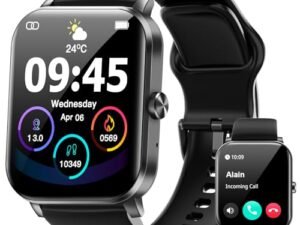To choose the best laptop for programming, understand software development needs. We need a machine that can multitask with various tools and applications.
The machine should work smoothly without any interruptions or crashes. Processor speed, RAM, storage type, and capacity are important factors. Keyboard comfort also plays a significant role.
High-resolution displays can improve our coding experience with clear visuals. Long battery life allows us to work for extended periods without interruptions. It reduces eye strain and eliminates the constant need to recharge.

Programming can be intensive on a computer’s resources. This is especially true when dealing with complex projects. These projects require running virtual machines or emulators. They also involve compiling large amounts of code.
We searched for laptops with strong CPUs and enough memory. Many developers prefer 16GB of RAM or more. Solid-state drives (SSDs) provide faster data access speeds.
This can greatly speed up boot times and file access. These advantages make them a better option than traditional hard disk drives (HDDs).
Programmers have different preferences based on mobility and workspace availability.
Lightweight and slim laptops with robust build quality are ideal for mobile users. Meanwhile, larger setups can enjoy more screen space or many monitors.
Finding laptops that cater to the diverse needs of programmers is key. Performance, portability, and comfort are important factors.
Essential Features for Programming Laptops
We prioritize laptops with high-performance processors for programming. We also prioritize laptops with ample memory and storage. We prioritize laptops. They have a keyboard design. It promotes comfortable, extended coding sessions. Additionally.
Processor Performance
A laptop’s central processing unit (CPU) is the heart of software development tasks. To run complex IDEs or virtual machines, we need a quad-core processor at minimum.
Higher-end models like Intel’s i7 or i9 provide faster compile times. Higher-end models like AMD’s Ryzen 7 or 9 series provide smoother performance. Reviews from PCMag can help distinguish the top performers.
Memory and Storage
RAM: For programming, you need at least 8GB of RAM. We suggest 16GB or more for bigger projects or multitasking.
Storage: An SSD is essential for us. It is fast at booting up an OS, launching applications, and accessing data. At least a 256GB SSD should suffice, but a 512GB or 1TB drive is optimal, as emphasized by insight from TechRadar.
Keyboard and Ergonomics
The laptop’s keyboard should provide a responsive and tactile typing experience. It should also have enough key travel to prevent fatigue during long coding sessions. Backlit keys are useful for typing in low-light conditions.
In addition, a touchpad enhances our productivity and ease of use. The touchpad has a smooth response and supports gestures. The ZDNET review gives a nod to laptops that balance these ergonomic features well.
Operating System Compatibility
Operating system compatibility is an important consideration for programming laptops. Programmers must choose laptops compatible with their preferred operating systems. This choice depends on the development environment and target deployment platform.
This ensures access to the necessary tools and software for efficient development workflows.
Windows Laptops for Development
Windows-operated laptops are widely recognized for their versatility in a development setting. They offer support for a broad range of programming languages and development tools. The Lenovo ThinkPad X1 Carbon Gen 11 is a top contender for programming. It offers robust performance on the Windows platform.
MacBooks for Developers
MacBooks are great for developing iOS and macOS applications. They work best in their native macOS environment. They excel at developing for the Apple ecosystem. The Unix-based architecture enhances the MacBook Pro with M1/M2 chip. It ensures a stable and powerful programming environment.
The MacBook Pro is often suggested for developers. It offers portability and processing power with the M1/M2 chip.
Linux-Friendly Laptops
Developers often prefer open-source and flexible laptops for a seamless Linux experience. Some manufacturers produce laptops with pre-installed Linux or certified compatible models. The Dell XPS series is a popular choice in this category. It is well-known for its excellent support of various Linux distributions.
Best Brands and Models
In our selection for programming, we focus on powerful CPUs, ample RAM, and solid build quality. These are our top picks from well-known brands. They are reliable in programming tasks.
Apple’s MacBook Line
Apple’s MacBook Air and MacBook Pro are standout options for developers favoring MacOS. They are equipped with Apple’s custom M2 chips. The chips seamlessly handle coding environments and virtual machines.
The MacBook Pro stands out for its impressive Retina display. It also has robust processing power, making it ideal for demanding development tasks. The MacBook Pro is evaluated comprehensively to determine its coding suitability. Details on the specifications are taken into account.
Dell’s Developer Edition Laptops
Dell has customized some laptops for developers. The Dell XPS 13 Developer Edition is a perfect example. The particular model has Ubuntu Linux pre-installed. It also has a high-resolution InfinityEdge display.
Dell’s XPS series is praised for its build quality. The keyboard comfort is also highly regarded. Both are essential for long programming sessions. Insights into the performance of the XPS 13 for programming can be found here.
Lenovo’s ThinkPad Series
Lenovo’s ThinkPad series is known for its exceptional keyboard experience. The ThinkPad X1 Carbon, in particular, stands out for its durability. ThinkPads have a strong design and are seen as workhorses in programming.
They are built to handle extensive coding and multitasking easily. They have options for powerful Intel CPUs and ample memory. More on the ThinkPad series tailored for coders is available here.
HP’s Elite and Pro Series
HP offers dependable performance and advanced security features in EliteBook and ProBook models. These laptops are strong contenders for professionals seeking dependable options. These laptops offer both power and portability.
You can choose from the latest Intel processors and professional GPUs. They are especially suitable for developers who prioritize security in their workflow. For an exploration of HP’s options for programmers, read more here.

Portability and Battery Life
When choosing a laptop for programming, we focus on portability. We also consider battery life to maintain productivity while traveling. Our choices focus on models that combine light frames with enduring battery performance.
Lightweight Designs
We seek out laptops that balance a light chassis with robust processing power. TechRadar highlights the significance of a lightweight design for programming laptops. They often prefer models that weigh under 4 pounds. Our criteria include:
-
- Material: Magnesium alloy or carbon fiber for reduced weight.
-
- Display Size: Typically between 13 and 14 inches for optimal balance.
These specifications guarantee a portable laptop without compromising screen size.
Long-Lasting Battery Models
Our programming tasks demand laptops with batteries that last through long coding sessions. According to PCMag’s review, leading models can offer over 10 hours of continuous use. Key features we look for are:
-
- Battery Capacity: Minimum 50 Wh (watt-hours)
-
- Optimized Software: Systems that manage power efficiently
This laptop has capabilities that keep us powered all day. It does not need to be charged.
Display Quality and Screen Size
When we choose the top laptops for programming, we prioritize display quality. We also consider screen size as a key factor. These factors affect how easily code is read and applications managed.
High-Resolution Screens
For a sharp and clear display, high-resolution screens are paramount. For clear text and less eye strain, use Full HD resolution. The minimum resolution is 1920×1080 pixels.
PCMag highlighted the best laptops for programmers in 2024. These laptops include models with 4K resolution and Full HD. Full HD is a strong standard that balances performance and power usage.
Larger Displays for Coding
Larger displays improve productivity. They show more code and make navigation easier. Our experience matches TechRadar’s findings. They suggest that a screen size of 15 inches or larger is best for programming.
Balancing size and portability is crucial, especially for frequent travelers.
Price Considerations
When we select the best laptops for programming, it’s essential to consider the price. The market offers various options that meet budget constraints and high-performance specs.
Budget-friendly Options
We can find some excellent laptops that balance cost and functionality. The Acer Chromebook Spin 714 is a cost-effective laptop option.
It is ideal for light to moderate development work. The price is around $699, making it appealing to many. Checking if the budget laptop meets software requirements is crucial.
High-End Coding Machines
Investing in high-end laptops is beneficial for those of us requiring power and speed. We need them for complex coding environments and multitasking.
The Apple MacBook Pro 14 with the M2 chip is an example. It offers impressive performance for demanding programming tasks. However, it has a higher price tag.
High-end laptops often have improved construction, faster processors, more RAM, and better displays. These features can greatly improve coding efficiency.
Developer Community and Support
Choosing the right programming laptop is about more than hardware specs. It also depends on the support ecosystem it offers.
Vibrant online communities are valuable to developers. Manufacturer support systems are essential and reliable for developers.
Online Forums and Resources
Online forums and resources are crucial for problem-solving. They also help you stay updated with programming trends.
Sites like Stack Overflow and GitHub offer a wealth of information. They also provide community support for developers to ask questions and share knowledge.
-
- Popular Platforms:
-
- Stack Overflow
-
- GitHub
-
- Reddit’s programming subreddits
-
- Official language-specific forums (e.g., Python’s Python Forum)
-
- Popular Platforms:
Manufacturer Support and Warranties
Having reliable support from the manufacturer is crucial. It helps resolve hardware issues that may impede development work. We value companies with thorough warranties and easy-to-reach customer service. These show their dedication to developers’ satisfaction.
-
- Key Warranty Aspects:
-
- Length of warranty period
-
- Scope of warranty coverage
-
- Availability of extended warranties
-
- Key Warranty Aspects:
-
- Noteworthy Support Features:
- Noteworthy Support Features:
-
-
- 24/7 customer service
-
-
-
- On-site repair services
-
-
- Community-driven support pages
As a Summary of Which Laptops Are Best for Programming
To choose the best laptop for programming, consider software development needs. This includes multitasking, smooth operation, processor speed, RAM, storage type, and capacity. Keyboard comfort is crucial. High-resolution displays and long battery life can enhance the coding experience.
Programming can be intensive on a computer’s resources. This is especially true when dealing with complex projects. These require running virtual machines or emulators. Many developers prefer laptops with strong CPUs. They also want enough memory and solid-state drives (SSDs). SSDs provide faster data access speeds.
Lightweight and slim laptops with robust build quality are ideal for mobile users. Larger setups can enjoy more screen space or use multiple monitors.
High-performance processors are essential for running complex IDEs or virtual machines. Higher-end models, like Intel’s i7 or i9, provide faster compile times. RAM should be at least 8GB, with 16GB or more recommended for bigger projects or multitasking. SSDs are essential for fast boot times and data access.
Operating system compatibility is crucial for programming laptops. It ensures access to necessary tools and software for efficient development workflows.
The MacBook Pro is a popular choice for developers. It’s portable and powerful. Open-source laptops like the Dell XPS series are popular. They support various Linux distributions.
For programming, laptops should balance lightweight designs with robust processing power. Lightweight models often weigh under 4 pounds. Long-lasting battery models are essential for long coding sessions. Some models offer over 10 hours of continuous use.
Display quality and screen size are crucial factors. High-resolution screens are essential for clear text and less eye strain. Larger displays, such as 15 inches or larger, improve productivity. They also make navigation easier.
Price considerations include the cost of the laptop, display quality, and battery life. The best laptops for programming should have a minimum battery capacity of 50 Wh. They should also have optimized software to keep users powered all day.
Manufacturer support and warranties are important. Companies should offer thorough warranties and easy-to-reach customer service. Key features to look for include a powerful processor.
At least 16GB of RAM is also important. You’ll want a solid-state drive (SSD), high-resolution displays, and a comfortable keyboard. People know Intel® Evo™ Laptops for their advanced build and premium features.
Apple laptops use macOS, a UNIX-based system, and M1 or M2 chips for excellent performance.
Programmers on a budget may find laptops with a good balance of processing power and memory. For example, an i5 processor and 8GB of RAM. You can know which laptops are best for students.
Asked Questions about Which Laptops Are Best for Programming?
Now we’ll answer your top questions about choosing a laptop. This is specifically for programming and software development purposes.
What features should you look for in a laptop for coding and software development?
To achieve optimal coding performance, we search for laptops with certain specifications. A high-performance computer needs a powerful processor. It should have at least 16GB of RAM. The computer should also have a solid-state drive (SSD) for faster access and storage.
High-resolution displays are important for an enhanced programming experience. A comfortable keyboard is also high on our list.
Can you suggest laptops that are great for IT professionals? Do they have a strong and durable build?
Laptops like Intel® Evo™ Laptops are famous for their advanced build. They offer premium features that meet IT professionals’ demands for durability and performance.
Are there laptops that perform well for graphic-intensive tasks? Can they handle video editing and coding at the same time?
We look for laptops with a dedicated GPU for graphic-intensive tasks. TechRadar tests these laptops for smoother video editing and coding performance.
How do Apple laptops perform for developers? Specifically, in programming environments.
Apple laptops use macOS, a UNIX-based system, ideal for programming. The newest models feature M1 or M2 chips. These chips provide excellent performance for developers, as reported in reviews and benchmarks.
Which laptops are best for developers? They frequently use Visual Studio and require efficient performance.
Developers who use Visual Studio benefit from laptops. These laptops have fast CPUs, substantial RAM, and SSDs. These components help with efficient compilation and debugging. PCMag’s roundup provides a selection of the top models fit for this purpose.
Which laptops are the best value for programming on a budget? Can you find any under 50,000 currency units?
If you’re on a budget, we suggest laptops with a good balance of processing power and memory. Aim for at least an i5 processor and 8GB of RAM. Some entry-level models reviewed by Rtings can be suitable for price-conscious programmers.
